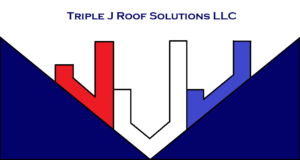Mod-Bit
Modified Bitumen (often abbreviated as Mod-Bit) is a type of roofing material that is commonly used for low-slope or flat roofs. It is made from asphalt that is modified with a rubber or plastic polymer, which gives it additional durability and flexibility. Mod-Bit roofing is often installed using a torch-down method, which involves heating the material with a propane torch to bond it to the underlying roof surface.
Mod-Bit roofing has several advantages over traditional built-up roofing systems. It is lightweight, which can help reduce the load on the building’s structure, and it is also highly resistant to damage from weather and foot traffic. It also has good waterproofing properties and can provide excellent insulation, helping to improve energy efficiency and reduce heating and cooling costs.
However, Mod-Bit roofing can be more expensive than other roofing materials, and installation requires specialized equipment and expertise. It is also important to ensure that the roofing system is properly designed and installed to prevent issues with leaks or other damage over time.
Single-Ply
Single-ply roofing is a type of roofing material that is designed to be installed in a single layer. It is typically used for low-slope or flat roofs and is commonly made from synthetic materials like PVC (polyvinyl chloride), TPO (thermoplastic olefin), or EPDM (ethylene propylene diene monomer). Single-ply roofing can also be made from natural materials like rubber.
Single-ply roofing has several advantages over traditional built-up roofing systems. It is lightweight and easy to install, which can reduce labor costs and installation time. It is also highly resistant to damage from weather, UV radiation, and chemicals. Single-ply roofing can also provide excellent insulation, helping to improve energy efficiency and reduce heating and cooling costs.
However, single-ply roofing can be more expensive than other roofing materials, and installation requires specialized equipment and expertise. It is also important to ensure that the roofing system is properly designed and installed to prevent issues with leaks or other damage over time.
Overall, single-ply roofing is a popular choice for many commercial and industrial buildings due to its durability, versatility, and energy efficiency.
Metal Roofs
Metal roofs are a type of roofing material that is made from metal panels or shingles. They are commonly used for both residential and commercial buildings and can be made from various types of metals, including steel, aluminum, copper, and zinc.
One of the main advantages of metal roofs is their durability. Metal is highly resistant to damage from weather, UV radiation, and pests, and can last for 50 years or more with proper installation and maintenance. Metal roofs are also lightweight, which can help reduce the load on the building’s structure and can be installed over existing roofs in some cases.
Metal roofs are also highly energy-efficient. They reflect a large portion of the sun’s rays, which can help reduce cooling costs in hot climates. Some types of metal roofs can also be designed to provide insulation, further improving energy efficiency.
Another advantage of metal roofs is their versatility. They come in a wide variety of colors and styles, allowing them to match the aesthetic of many different types of buildings. They can also be coated with special coatings that help to prevent corrosion and extend the life of the roof.
However, metal roofs can be more expensive than other roofing materials, and installation requires specialized equipment and expertise. They can also be noisy in rainy or hailstorm conditions, although this can be mitigated with proper insulation.
Overall, metal roofs are a durable and energy-efficient option for many buildings, and their versatility and aesthetics make them a popular choice for many homeowners and commercial property owners alike.
Roof Coatings
Roof coatings are specialized materials designed to protect and extend the life of your roof. They are typically applied as a liquid and then cure into a solid, seamless membrane that adheres to the surface of your roof. Roof coatings come in a variety of types and formulations, each designed to meet the specific needs of different types of roofs.
Roof coatings can provide a variety of benefits, including:
-
Waterproofing: One of the primary functions of roof coatings is to protect the roof from water damage by providing a waterproof barrier.
-
Reflectivity: Many roof coatings are designed to reflect sunlight, which can help keep the roof cooler and reduce energy costs associated with cooling the building.
-
UV Protection: Some roof coatings are formulated to protect the roof from UV damage, which can cause the roof to deteriorate over time.
-
Durability: Roof coatings can provide an additional layer of protection to the roof, helping to extend its lifespan and prevent damage from weather and other environmental factors.
-
Cost-effective: Applying a roof coating can be a cost-effective way to extend the life of your roof without the expense of a full replacement.
